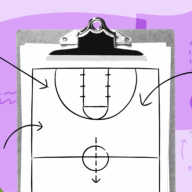You’re wrong, and that’s alright
Author and entrepreneur Shane Snow shares why you should argue against yourself in order to develop better ideas.
Author and entrepreneur, Shane Snow, came to speak about the secret of dream teams at Atlassian Summit in Barcelona this year. This article is part of what he shared with us at the event.
Back in 1900 a pair of quirky scientists would work together all day on a big, complicated project.
Neither knew the best way to solve the problem, but they each had their own strong hunches and opinions. So strong in fact that they’d spend the better part of the morning yelling at each other and defending their convictions. Then, when lunchtime came, they’d sit down and eat amicably.
After lunch, it was back to work. Except this time, they’d argue from the other scientist’s perspective. These two dreamers were Orville and Wilbur Wright. You know what happened next.
Though at the time they didn’t have the terminology for it, the Wright brothers were practicing a skill essential to great teamwork: intellectual humility.
It’s okay to be wrong
Intellectual humility is defined as a “non-threatening awareness of one’s intellectual fallibility” (Krumrei-Mancuso and Rouse, 2016). It means that you recognize and embrace the fact that you won’t always be right.
It’s the ability to respect another’s viewpoint and the willingness to revise your own. To change your mind. And according to Shane Snow, it’s the #1 collaboration skill you should develop this year.
Unfortunately, at work and beyond, we frequently see the exact opposite of intellectual humility. We complain that our coworkers aren’t open minded, in meetings we feel everyone is just defending and pushing their own ideas. We don’t employ active listening, and we don’t create psychological safety in our work environments.
In spite of the challenges we face that stand in the way of intellectual humility, Shane recommends 3 easy things you can do right now to grow this muscle.

1. Argue the other side
In the style of the Wright brothers, the next time you find yourself at odds with a team member, try switching sides and argue against your opinion.
This automatically opens up your way of thinking so that you aren’t so entrenched in one idea, and it helps your colleague to do the same. One easy way to start doing this is to point out what you see as the benefits of a colleague’s argument, as opposed to just finding the negatives.
It will help everyone involved make a better decision. According to Shane’s research, people with high intellectual humility are better able to detect the validity of persuasive arguments.

2. Don’t fake it
There’s no bullshitting when it comes to intellectual humility. If you’re asked a question and don’t know the answer, just be honest and say “I don’t know”. Fudging it leads to wasted time and bad decisions.
Admitting you don’t know something also builds trust with others. If you show a willingness to admit it when you don’t know, your teammates will believe you when you do know the answer.
If this idea makes you nervous, take heart. Research has found that saying “I don’t know” makes you appear smarter at work.

3. Choose your words wisely
As brilliant as he was, Benjamin Franklin maintained his intellectual humility through his speech. He famously started ideas saying things like, “I could be wrong, but…” He avoiding using absolutes in his language in order to invite debate and feedback.
Here are some other phrases you can use to create space for healthy debate:
- “From what I know…”
- “In my opinion…”
- “For what it’s worth…”
Intellectual humility may not come naturally, but developing the ability to let go and listen will make you a better teammate and more effective contributor. Give it a try and see what big feat you and your team can achieve.
Shane Snow is the Co-founder of Contently, and author of Dream Teams: Working Together Without Falling Apart. As an entrepreneur and journalist, Shane combs through science and history to understand and elucidate incredible teams and what makes them tick.











































